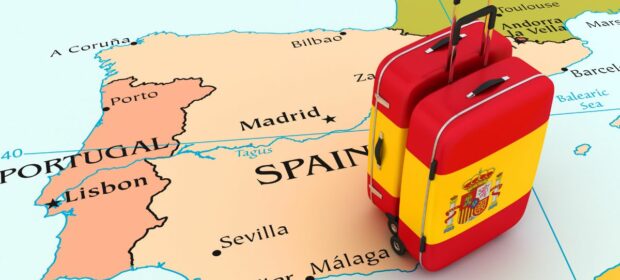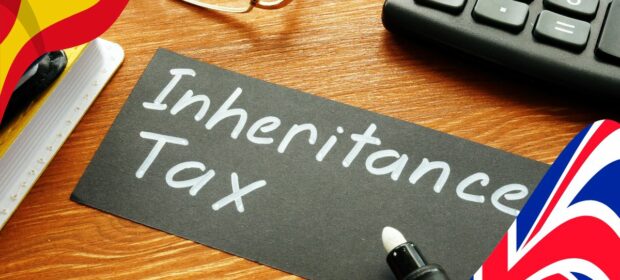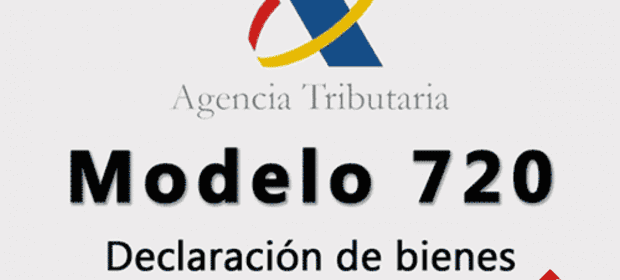It is all about the planning, solutions, implementation and continuing support (PSIC).
Why do your fellow affluent expats become clients of The Spectrum IFA Group in Spain?
By Barry Davys
This article is published on: 30th June 2025

We take as long as is necessary to understand your situation and listen to your hopes and plans for the future. It is time well spent because to be effective for you, we work to understand first, which then guides the process for your planning. In fact it governs how you and your adviser approach each step in our PSIC process..
So, why do wealthy expatriates become clients of The Spectrum IFA Group in Spain?
- Secure document exchange and secure email
- We take into account your views, especially in your approach to risk
- We look forward, not just backwards at past performance
- Cashflow modelling allows you to see what your financial future could look like and includes a “What if” function to allow you to see potential outcomes before you commit to a decision
- Investment portfolios are built according to your individual objectives, using a discretionary fund manager if appropriate. Historic performance data from 1990 to 2023 is used for reliable and realistic cashflow forecasting
- When you become a client of The Spectrum IFA Group in Spain, we take into account the impact of the following in our planning and investment recommendations: Wealth tax, Income tax, Capital gains tax, Inheritance tax, Gift tax, Property tax and how to mitigate the impact of these taxes
- We plan across generations
- We understand both UK and Spanish taxes, how they work together and where they conflict, to help with cross-border tax planning
- Our assistance has included planning leading up to and post business sales, structuring share option vesting, managing property sale proceeds, investment of lottery/premium bond wins and gifts and advice for adult children of clients.
- Ongoing service which follows a clear process to ensure long-term planning remains fully aligned with your circumstances
- The Spectrum IFA Group has been advising in Spain for 23 years. We currently have 17 advisers across the group who have been with us continuously for 20 years or more
- Additional tax guidance and reporting – in Catalonia I work with only two firms of tax lawyers after vetting dozens.
- I call on the support of a specialist Visa lawyer to advise on and apply for visas
- We have a specialist mortgage service within the group – Spectrum International Mortgages is a mortgage broker in Spain with extensive experience handling high value transactions. A search of one estate agent’s offering in the area around S’Agaro, Costa Brava, shows the following available properties:
– 31 over €1M
– 13 over €2M
– 7 over €3M
– 3 over €4M
– 1 over €5M
– 1 over €6M
– 2 over €7M
– 1 over €8M
– 6 with Price by Request

- Our mortgage solutions are available as a stand alone service or as part of our PSIC process – the PSIC process itself is best suited to clients with €500,000 or more to invest
If this is how you want your planning to be managed, book an initial call directly with Barry Davys, at a time that is convenient for you, using his online service. You will be offered the choice of a phone call or a video call when choosing your time.
Relocating to Spain
By Barry Davys
This article is published on: 27th June 2025

Are you planning to relocate to Spain and don’t know where to start? Are you a Spanish national thinking of coming back to Spain after more than 5 years in the UK?
Barry Davys was a guest with the Spanish Chamber of Commerce alongside Kle&Vera – the international law firm, in the UK for a recent webinar on Relocating to Spain & the Financial Insights.
You can watch part of this webinar below:
If you have any questions after watching the video or would like to talk to Barry, please use the online calendar booking system to choose a time that suits you.
Why a Financial Adviser is Essential for Expats Living in Spain
By Barry Davys
This article is published on: 18th January 2025

Change is inevitable, and for many, it can be unsettling—especially when moving to a new country like Spain. Navigating the complexities of a new tax system, managing investments in unfamiliar markets, and ensuring your financial future aligns with both your personal goals and local regulations can be daunting.

Fortunately, in the 19 years I have been in Spain, many of my clients have placed their trust in me, allowing me to guide them through these challenges on their financial journeys. While seeking professional advice might involve a cost, the peace of mind it provides – and the assurance that your wishes are carried out efficiently and effectively – makes it an invaluable investment.
For expats living in Spain, the need for a financial adviser becomes even more apparent. The financial landscape here is unique, with specific regulations, tax implications, and cultural nuances that can easily trip up even the savviest individuals. An experienced adviser ensures that every decision you make is informed, compliant, and tailored to your needs.
The Value of an Adviser in Spain
When you choose to work with a financial adviser in Spain, you gain far more than someone to manage your investments. Here’s what we bring to the table:
- Navigating Spanish Tax Systems: Spain’s tax system is complex, particularly for expats. From wealth taxes to inheritance taxes and the rules around double taxation treaties, an adviser can guide you through the maze and help optimise your arrangements.
- Structuring Tax-Efficient Investments: An adviser ensures your assets are structured to maximise tax efficiency during your lifetime and, importantly, for your family after you’re gone.
- Providing Stability During Market Turbulence: When stock markets fluctuate, it’s easy to panic. An adviser helps you maintain perspective, adapt strategies if necessary, and keep focused on your long-term goals.
- Liaising with Local Experts: In Spain, financial planning often requires collaboration with tax lawyers, notaries, and other local experts. A good adviser coordinates these relationships to safeguard your interests.
- Accessing Expert Investment Insights: Advisers have access to fund managers and global investment opportunities that may outperform self-managed options. This expertise ensures your investments are aligned with your risk tolerance and financial goals.
- Supporting Life Transitions: Whether you’re buying property in Spain, starting or selling a business, or preparing for retirement, an adviser provides a steady hand to guide you through every major change.
Preparing for Life’s Uncertainties
As an adviser with decades of experience, I’ve walked with my clients through every stage of life. For expats, ensuring your financial affairs are in order is crucial—not just for you, but for your loved ones. If your next of kin are unfamiliar with Spanish legal and financial requirements, settling your affairs can become an overwhelming burden.
A good financial adviser ensures everything is prepared ahead of time, reducing stress for those left behind. This includes organising inheritance planning to minimise tax liabilities and ensuring your wishes are carried out exactly as intended.
Planning for Continuity
Even as I consider the future of my own practice, I reflect on the importance of continuity. For my clients, this means having a trusted team in place to manage their affairs should I no longer be available. Similarly, expats need to consider how their financial arrangements will be managed over the long term, especially in a foreign country.

Why You Shouldn’t Go It Alone
While it’s possible to manage your finances independently, the risks of missing out on key opportunities or making costly mistakes are significantly higher. This is especially true in Spain, where the rules and regulations are often different from those in your home country.
Working with a financial adviser ensures that every aspect of your financial life is optimised and aligned with your goals. It’s not just about avoiding pitfalls, it’s about unlocking opportunities that you might not even know exist.
Take Control of Your Financial Future
Whether you’re new to Spain or have lived here for years, the value of professional financial advice cannot be overstated. By partnering with a knowledgeable adviser, you gain more than financial stability, you gain peace of mind, knowing that every decision you make is informed, strategic, and designed to protect your future.
Don’t leave your financial future to chance. Take the first step today. Send me a summary of your situation at barry.davys@spectrum-ifa.com and discover how tailored financial advice can help you achieve your goals while navigating the unique challenges of living in Spain.
Contact me now to begin your journey toward financial clarity, security, and success. Your future self, and your family, will thank you.
AI in financial planning
By Barry Davys
This article is published on: 8th January 2025

Enhancing Your Financial Strategy with Trusted AI Tools
The buzz around Artificial Intelligence (AI) is hard to ignore, with tools like ChatGPT becoming increasingly accessible. While AI offers exciting possibilities, my approach remains measured and focused on one goal: enhancing your financial planning experience.

How AI Enhances Your Financial Planning
AI is a powerful tool, but it’s not a replacement for personalized advice.
Instead, I use AI to complement my expertise, freeing up more time to focus on your unique needs and objectives. Below, I’ve outlined how AI is being integrated into our processes and the benefits it brings to you.
Common Questions About AI in Financial Planning
Will AI take over jobs?
AI is ideal for repetitive tasks, such as sorting recyclable materials in factories. In financial planning, it’s a supportive tool, not a replacement for human judgment and empathy.
Will my financial planning be fully automated?
Absolutely not. Financial planning is deeply personal and requires understanding your goals, values, and circumstances. While AI can assist with specific tasks, I remain at the heart of your financial strategy, ensuring your plan reflects your needs.
Where and How AI is Being Used
I take an incremental approach to adopting AI, focusing on areas that directly enhance your experience and outcomes:
1. Cash Flow Modeling
AI helps generate clearer, more timely reports, allowing us to review and adjust your plan efficiently. Future developments will include portfolio research and implementation improvements, currently in the testing phase.
2. Tax-Efficient Savings
Calculating taxes on investments with complex withdrawal patterns has traditionally been time-consuming. AI now streamlines this process, reducing calculation times from weeks to days, ensuring more accurate and timely tax planning.
3. Investment Research
AI aids in analyzing market trends and investment options, giving us deeper insights to recommend strategies aligned with your goals.
4. Communication
AI enhances how I communicate updates on your financial plan, changes in tax laws, or regulatory developments. You’ll receive information faster and in more digestible formats, keeping you informed every step of the way.

A Human-Centered Approach
AI is an augmentation tool, not a replacement. It allows me to dedicate more time to addressing life events and complex planning needs, including:
- Managing inheritances and inheritance tax (in Spain and the UK)
- Retirement planning tailored to your lifestyle goals
- Tax-efficient strategies whether you stay in Spain or return to the UK
While AI supports behind the scenes, you can trust that I remain your adviser – a person you can rely on for clarity, guidance, and answers to all your financial questions.
A Commitment to Your Success
AI is being introduced thoughtfully, with the sole aim of improving outcomes for you. Rest assured, I’m not becoming a robot or avatar. I will always be here to provide personalized, human-centric advice tailored to your unique circumstances.
If you have any questions about how AI is being used or how it benefits your financial plan, please don’t hesitate to reach out.
To start a conversation book a call with Barry Davys using his online system. This allows you to choose a time that is convenient for you for the call which can be either a phone or video call.
Save UK Inheritance Tax if you live in Spain
By Barry Davys
This article is published on: 26th November 2024

It is highly unusual for a UK budget to give us an opportunity to significantly reduce our tax liabilities. The budget of the 30th October 2024 has done exactly this, and by following a few basic steps it is easy, for those of us who have lived outside the UK for more than 10 consecutive years, to benefit greatly.
Background
The UK currently has an Inheritance Tax system where the estate of the deceased is assessed based on worldwide assets if they were considered domiciled in the UK at the time of death. The term domicile and its meaning has been the important factor to consider up to now, and in the UK has a different meaning to “resident” or “residency”.
There is no need for us to go into the definition of domicile here, as the budget has changed the basis for Inheritance Tax (IHT) assessment to a “residency” test, which has also simplified the tax system.
“Residency” Basis
If you have lived outside the UK for more than 10 consecutive years, your non UK assets will not be liable to UK IHT. The rule is as follows –
From 6 April 2025, the test to determine whether non-UK assets are within the scope of IHT will be whether an individual has been resident in the UK for at least 10 out of the last 20 tax years immediately preceding the tax year in which the chargeable event (including death) occurs.
(Editorial Note. Some other press and advisers are stating it is 10 years, not more than 10 years, outside the UK. This applies to a different tax in the Budget, not IHT).
To meet the rule it is necessary to have been out of the UK for more than 10 years, because of a Split Year rule for taxation that will also apply. Again, there is no need to go into detail here, suffice to know that we need to be out of the UK for more than 10 years in the last 20.
How beneficial is the change to “residency basis” of assessment?
The benefit will depend on our personal circumstances, where our assets are based and the value of our assets.
I have used a case study to illustrate –
Mr & Mrs Ingles
– More than 10 consecutive years out of the UK in the last 20 years
– Assets outside the UK include Spanish compliant bonds, bank accounts, QROPS pension and property, all jointly owned, as follows:
Spanish bank accounts €98,000
Spanish compliant bonds €290,000
House (mortgage free) €525,000
QROPS pension €178,000
Total €1,091,000
– UK assets £325,000 jointly owned
Mr and Mrs Ingles can return to the UK and if death occurs within 10 years of the return the following will apply.
– UK assets assessed for UK IHT fall within the UK nil rate band. Tax due £0
– Assets outside the UK not assessed under the residency basis €1,091,000
At the time of writing the exchange rate would give a value to the non UK assets as £865,814. The savings from not having these assets taxed in the UK would be £346,325.60. (£865,814 * 40%)
How to save UK IHT when living in Spain – top six tips
- Take professional advice
- Don’t move back to the UK until you have more than ten consecutive years out of the UK
- Keep your non UK investments outside of the UK outside if you qualify under the new residency test
- Consider moving excess UK funds to non UK investments. For example, ISAs are taxable in Spain and there is now merit in disposing in favour of non UK assets
- Pensions in the UK are liable to IHT from April 2027 and it is therefore doubly important to keep non UK pensions beyond the scope of IHT
- When drawing income or capital from your investments and pensions, take advice on the manner and order in which you do this, as it makes a difference to your IHT exposure and also how long your savings will last

And here is the icing on the cake
Complete more than 10 consecutive years outside the UK, return to the UK and be unfortunate enough to pass away in the next 10 years, and your estate will get the additional benefits (on top of being IHT exempt on non UK assets):
- If you and your spouse were both long term non resident, you will receive the spousal allowance – 100% IHT free transfer of your assets to your spouse if directed by your Will
- Each spouse receives an IHT allowance of £325,000 with only UK assets above this amount being taxed
- If you have a main residence and your total individual wealth is less than £2M you will get the main residence relief of £175,000
If you pass away outside of the UK and your beneficiaries are in the UK, they will pay no UK IHT if you have met the long term non resident criteria. This is because your non UK assets will not be taxed in the UK. As the UK government taxes your estate, not the beneficiary receiving the bequest, no IHT will be payable.
And because you live in Spain, your UK based beneficiaries will be assessed on residency and as they are outside Spain they will not have to pay Spanish IHT on non-Spanish assets.
Conclusion
The changes to UK IHT rules are hugely important for those of us living outside the UK. It may be possible to leave anything from tens of thousands pounds (or euros) to hundreds of thousands to our family and/or worthy causes.
There is a great deal of planning that can be completed to get the best outcome for you. It will depend on your personal circumstances. However, as a principle, it is better to start this planning sooner rather than later.
To start a conversation book a call with Barry Davys using his online system. This allows you to choose a time that is convenient for you for the call which can be either a phone or video call.
Source: HMRC, UK Gov 30th October 2024
Notes
This article is for general information purposes only. Professional tax advice must be taken before undertaking planning to benefit from changes to the UK IHT system.
The content is based on our understanding of legislation at 25th November 2024
The policy paper issued by HMRC as part of the Budget becomes law when the Act of Parliament has been passed.
You can find out more about Barry Davys of The Spectrum IFA Group and his clients by clicking Barry Davys IFA
Update on UK pensions when living in Spain
By Barry Davys
This article is published on: 4th November 2024

During the Brexit negotiations, many of us Brits living abroad were concerned about our fate following March 2019. Thankfully, Britain and the EU reached a solid agreement about the rumoured ‘freezing’ of the state pension after Brexit, and the result is very positive indeed – state pensions will continue to increase for those of us living in the EU.
To read the full article please click here www.telegraph.co.uk/pensions-retirement/news/britain-eu-reach-agreement-expats-state-pension-brexit/
Further to the post above about the UK State pension. Here is how helpful this agreement to increase pensions has been. All figures per week
- 2017 – £159.55
- 2018 – £164.35
- 2019 – £168.60
- 2020 – £175.20
- 2021 – £179.60
- 2022 – £185.15
- 2023 – £203.85
- 2024 – £221.20
- 2025 – Budget announcement £230.30 (has to be confirmed by Parliament)
At a time that is convenient for you
I feel sick that I am not going to the Caribbean and Patagonia…
By Barry Davys
This article is published on: 3rd May 2024

How would you feel knowing that your hard-earned savings could be earning 9.6% pa for the next 30 years but that you have opted for an alternative paying just 2% pa instead? Ok, this is quite provocative as they are two different types of savings.
According to the Schroder 30-year forecast, these could be the average annual returns on the Indian stock market and deposit accounts respectively.
So now you may be rationalising your decision to use a deposit account by saying something like “Oh well, I don’t like the stock markets and I don’t know much about India”. This is fair enough.
Your best friend has just said “We are off to the Caribbean for a few weeks and we have always wanted to go to Patagonia so we may nip across there for a bit after the Caribbean” …. “Blimey, how can you afford that?” is what you might say, or at least think.
How interesting it would be to hear “We put some of our money in shares in Indian companies and they have paid for the trip” Your average return of 2% pa may now seem pretty sickening.
Would you invest for 30 years? Maybe, maybe not. Will you be around for 30 years, depending on your current age?
And here’s a funny thing
- At age 50 your average life expectancy is 82 for men and 87 for women
- At age 60 your average life expectancy is 83 for men and 87 for women
There’s more
- At age 70 your average life expectancy is 85 for men and 89 for women
- At age 80 your average life expectancy is 89 for men and 91 for women
- At age 90 your average life expectancy is 94 for men and 95 for women
The older we get the more our life expectancy increases. All of this means that you could well be around for 30 years or more if you are under the age of 60. You do not however have to have a 30-year investment time horizon. The minimum period we would suggest is five years but after that there is flexibility with timing.
It is not always easy to choose your savings but here is how we help with guidance:
- Leave money aside for an emergency fund (yes, in that deposit account)
- Complete a reliable risk assessment exercise to determine your attitude towards risk
- Show you different combinations of investments around your personal risk profile and discuss the options with you
- Never put all your money in one type of investment eg not all in a deposit account
- Review your attitude to risk regularly because it changes as your circumstances change
- Adjust your investments when required to ensure you are taking the appropriate level of risk for your circumstances
Which of the following applies to your situation?
- Have too much money in bank accounts?
- Have recently received an inheritance?
- Are selling a business or have share options about to vest?
- Have losses on your current portfolio?
- Do not review your risk profile and investments at least annually?
If the answer is yes to any of these questions, please feel free to arrange a call with me using my online system to book a time that is convenient for you.
It is an opportunity to get a better outcome from your savings, provide for your family, and help give yourself a sustainable income in retirement.
Undoubtedly, you will be more relaxed too knowing that you have the right risk profile for your savings and that it is updated annually.
What does a stockmarket fall of 36% mean?
By Barry Davys
This article is published on: 11th April 2024

It means your savings need to be organised before it happens
On 16th October 1987, the stock market in the UK fell 14%. By mid-November it was down 36%. It is for this reason you should keep reading.
The share price falls were across the board and good companies fell with the less successful. It was an arbitrary general fall in the FTSE 100 index. It seemed like a very risky time to be investing.
One of these falling shares was M & S. Yet to me it was ridiculous that M & S had been devalued by 36% when the business was in good shape and with prospects for ongoing growth.
I saw an opportunity to invest in the FTSE 100 index as I felt sure the better companies would be re-valued to reflect their sales and prospects. I knew that this was an opportunity to invest in my future, (not to try to make a quick buck).
Some of my clients also put part of their savings in the FTSE 100 index. Many did not. By August 1989 the index had recovered all of its lost ground. By 17th November 1997, it had gone up by 100% and is now 378% higher than it was in October 1987.
“Investing is the intersection of economics and psychology”
Seth Klarman – portfolio manager and billionaire
This is what I learned from those people who did not invest and which I now use to help people look after their savings. I now understand why those other people did not invest. The reason they didn’t is that I had not discussed, in detail, on a one to one basis, the following –
- Their Attitude to Risk
- The timeframe of their investments
- Their capacity for loss
I arguably let those people down as their savings did less well than the people who did invest.
Having learned a lesson from the experience my clients now benefit from this insight.
It is important not to take too much risk, which I understand. But it is also important to take at least some risk, if your circumstances allow it.
It is important to avoid taking no risks. Indeed, I often hear people say “I want to be Cautious” or “It needs to be safe” and they have left money in the bank earning very little and certainly not keeping up with inflation.
If you think putting money in the bank is low risk, you could be right.
However, taking no risk/low risk can be the biggest risk of all and in the worst case an absolute certainty that your money will not keep up with inflation in the long term and you might not enjoy the retirement you had planned.
The risk of not keeping up with inflation, with not building up your savings, is you end up with a pot too small to provide a sustainable income in retirement. But with the right advice and the correct level of risk for you and your circumstances your sustainable income in retirement is much more likely.

Here are the things I consider when helping you judge the balance of risk versus the growth of your savings. A simple online questionnaire allows you to answer questionnaires to give you a suggested risk profile.
However, we do not leave it entirely to a computer to decide your future. I then discuss the suggested profile, answer your questions, double-check the suggested profile with you, and make any recommendations for improvement based on my 36 years of experience. A good blend of AI (artificial intelligence) and EI (experience intelligence).
What does this mean in practice and why trust me? Here is the outcome that clients get from the correct risk profile:
- Bank accounts – needed to manage day-by-day spending and, separately, for an emergency fund for those unexpected bills
- Always manage the tax aspect of your savings
- Balancing flexibility with longer-term savings
- Separate savings pot for different purposes. Why? If you wish to assist children with buying their house(s) and also want to manage your savings to provide an income in retirement, these aims are different and can therefore benefit from different risk approaches. Helping the children is a one-off event (per child) and is likely to come before your need for retirement income. The need for income in retirement can span 30 or 40 years, from when you stop work to when you pass away
- In each saving pot, we make sure you have a globally diversified portfolio set of assets
- Sometimes premium bonds are used for an emergency fund
- Update your risk profile annually because your circumstances and requirements may change. If so, this may suggest an update to your savings pots which can keep you on track
Here’s why you should trust yourself. Inflation will go up and down but the world’s demographic is changing. Fewer workers mean higher wages and lower state pensions. These things point to higher inflation in the future. Getting the risk balance right on your savings is not a “nice to do”, it is essential. You need to trust that, with the right support, you can improve the likelihood of healthy savings.

Do any of the following apply to your situation ?
-
- Have too much money in bank accounts
- Have recently received an inheritance
- Are selling a business or have share options about to vest
- Have losses on your current portfolio
- Do not review your risk profile annually
If yes, arrange a call with me using my online system to book a time that is convenient for you.
It is an opportunity to get a better outcome from your savings, provide for your family, and help give yourself a sustainable income in retirement. Undoubtedly, you will be more relaxed too knowing that you have the right risk profile for your savings and that it is updated annually.
Do you need to submit a Modelo 720?
By Barry Davys
This article is published on: 16th January 2024

Do you need to submit your M720 to the Hacienda before 31st March?
If you have assets outside of Spain you may need to report these to the Spanish tax man on the Modelo 720. In effect it is a “census” as it does not trigger any payment of tax. However, it does help the Hacienda cross check information.
If you have bought or sold an overseas asset in the last calendar year, you may need to submit a M720, even if you have previously submitted a form. Also, if the value of your overseas assets have increased by more than 20,000€ since you last submitted a form you may also need to re-submit. If the answer is “Yes” you must submit your form before the 31st March.
Here is a link to the obligation to report on the Agencia Tributaria (Hacienda) website which lays out if you need to report your bank accounts, investments and properties that are outside of Spain. Google Translate does a good job of translating this, if needed.
You may have seen in the press that the European Court ruled on the M720 rules. I am pleased to report that the fines for non-reporting or mis-reporting have been struck out by the court and new, much lower, fines will be put in place.
Please note that we are seeing articles saying the M720 is no more. This is not the case. In fact the court, whilst removing the very high fines, also said in it’s ruling that they could see the need for the M720.



